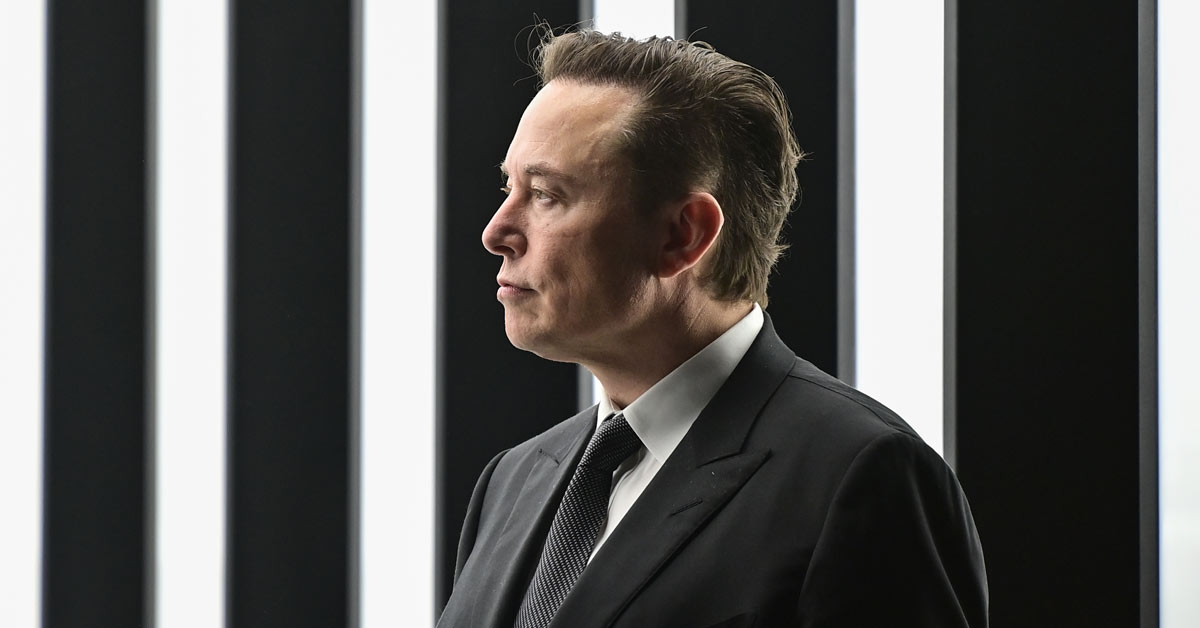When the news broke last week that Elon Musk, the chief executive of Tesla and SpaceX and the world’s richest man, had paid US$2.9 billion (£2.3 billion) for 9.2 percent of Twitter, the media world – old and new – briefly lost what might loosely be called its collective mind. What was Musk up to? (He’s always up to something, after all, even if it’s just trolling. And, with more than 80 million Twitter followers, he’s quite an effective troll.)
Since nobody knows what goes on inside Musk’s head, fevered speculation began. One camp thought that he had just done it “for the lulz” (fun, amusement, humour, schadenfreude). Indeed, if your net worth is US$290 billion, US$2.9 billion is effectively loose change. And it made him the biggest single shareholder in the company. Twitter then recognised the gravity of the situation and agreed to give him a seat on the board in a deal that supposedly prevents him from buying a majority stake in the business.
For what it’s worth, I don’t buy the lulz explanation. Of course, Musk loves playing to his vast gallery, but something far more serious is afoot. He wants to make significant changes to the way Twitter works. In particular, he believes the platform ought to have an edit button that would enable people to revise their tweets post-transmission. He polled his Twitter followers asking if they agreed. Of the 4.4 million who voted, 73.6 percent said yes.
Why is this interesting? Basically, because Musk has a problem with his own addiction to Twitter. It’s called the US Securities and Exchange Commission (SEC), the powerful agency of the federal government that was created in the aftermath of the 1929 Wall Street Crash and whose primary purpose is to enforce the law against market manipulation. And Musk has been in conflict with the SEC for quite a while.
In 2018, for example, he was sued by the agency after he had tweeted that he had “funding secured” to take Tesla private at US$420 a share. He settled the case by giving up his title as chairman and the company agreed to appoint a “Twitter sitter” – a securities lawyer who would henceforth have to approve any written statement Musk made about the company that might contain “material information”.
The settlement was updated in 2019 to specify topics he couldn’t tweet about without approval; these included Tesla’s financial condition, earnings forecast, proposed acquisitions and production data. Trying to put a legal muzzle on Musk is like trying to put a lid on Mount Etna and the SEC is investigating whether he has been complying with the 2019 settlement.
Having seen some of the stuff he’s tweeted, I’d be amazed if the agency found that he had been in compliance with either the letter or the spirit of the settlement. Last month, he filed a legal suit asking a federal judge to throw out the agreement. Most significantly, his lawyer contended that the SEC is effectively trying to prevent him from exercising his “first amendment rights”.
So, apparently this is now all about the US government trying to curb the free speech rights of a chief executive to publish anything he likes, including market-sensitive comments about its stock price (as in a Musk tweet of 1 May, 2020 that “Tesla stock is too high imo”).
Collision Course
Given that Musk’s tweeting incontinence seems incurable, it’ll be interesting to see what the SEC decides. As a government agency, it clearly cannot force Twitter to de-platform him, because that would indeed infringe the first amendment. On the other hand, Twitter could ban him – as it did Donald Trump – because it’s just a public company. although it now happens to be part-owned by him.
But what if Musk continues his practice of tweeting what in securities law is regarded as material information about his company – stuff that could affect its share price? This would put him on a collision course with the law that would deter most corporate executives. Musk, however, has a track record of being indifferent to legal regulations.
At the beginning of the COVID-19 crisis, he reopened his California Tesla factory in defiance of a local lockdown order. As the media reported at the time: “‘Tesla is restarting production today against Alameda County rules,’” the billionaire chief executive tweeted. ‘I will be on the line with everyone else. If anyone is arrested, I ask that it only be me.’”
He also threatened to move its headquarters and “future programmes” to Texas or Nevada “immediately” and suggested that the company may not continue to “retain Fremont manufacturing at all”.
We’ve arrived at a strange place where, as tech commentator Ranjan Roy puts it: “The US government regulator has been in a fight with the world’s richest man over his ability to use a communications platform that’s vital to his business interests – and he just went and effectively bought the platform.” Which may be why he is suddenly in favour of being able to revise his tweets. It may ultimately be his get-out-of-jail card.
